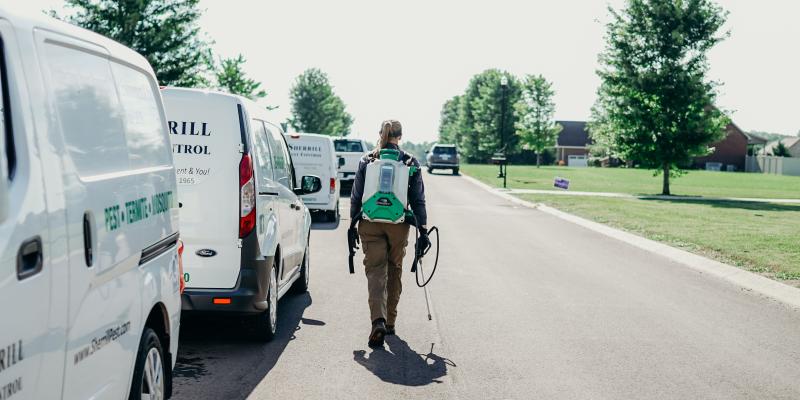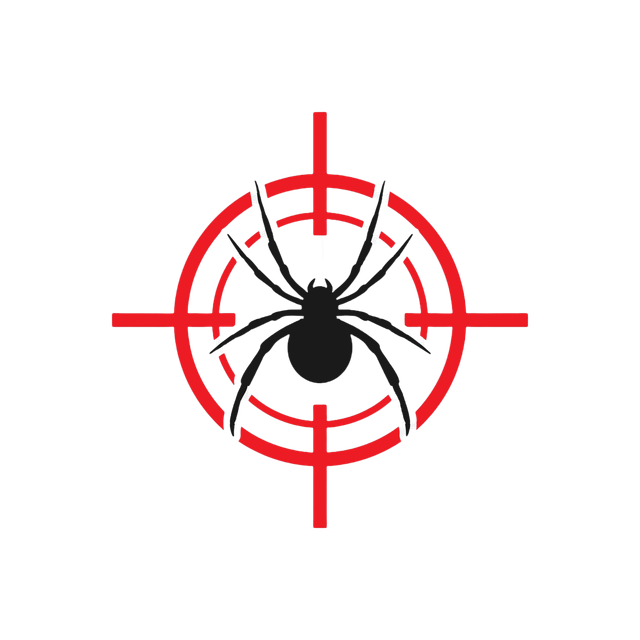A Breakdown of the Numerous Sorts Of Pest Control Solutions
In the realm of pest control, a multitude of methods exist to address and battle the visibility of undesirable animals. As we browse with the diverse landscape of bug control remedies, recognizing the intricacies of each approach ends up being vital in determining the most effective training course of action.
Chemical Pesticides

Among the primary advantages of chemical pesticides is their ability to give prompt remedy for bug invasions. When applied correctly, these pesticides can rapidly eradicate parasites, protecting against additional damage to plants, frameworks, or human health and wellness. Additionally, chemical pesticides come in numerous types such as fumigants, baits, and sprays, making them functional and appropriate for different insect control needs.
Nonetheless, it is necessary to use chemical pesticides with care due to their possible unsafe impacts on the environment and non-target species. Incorrect application or overuse of these pesticides can cause pollution, damage to helpful insects, and resistance advancement in pest populaces. Therefore, it is critical to comply with safety and security guidelines and guidelines when using chemical pesticides for bug control.
Biological Control Techniques

There are 2 main kinds of biological control: classical and augmentative. Timeless organic control entails introducing natural opponents from the parasite's indigenous range to control its population. On the other hand, augmentative biological control includes launching huge numbers of natural enemies to minimize insect populations promptly.
One advantage of biological control is its long-lasting performance. As soon as developed, all-natural adversaries can assist control pest populaces continually without the requirement for duplicated applications of pesticides. Furthermore, biological control is usually more affordable and can assist decrease pesticide resistance in insect populations in time. On the whole, organic control techniques use a lasting and ecologically friendly service to pest management.

Mechanical Pest Control
Mechanical bug control entails the physical manipulation or removal of insects to manage their populaces properly. This method is commonly employed in conjunction with various other bug control strategies for extensive insect administration. One typical instance of mechanical hop over to these guys bug control is utilizing catches to catch bugs or rodents. These traps can be established in calculated places where insects are understood to dwell, assisting to decrease their numbers.
An additional mechanical technique is making use of barriers such as displays, fencings, or internet to obstruct bugs from going into specific locations. By literally protecting against insects from accessing a place, the chance of invasions or damage can be considerably decreased. Additionally, hand-operated techniques like handpicking pests off structures or plants can be effective for smaller-scale problems.
While mechanical insect control methods can be labor-intensive, they use a non-chemical alternative that can be eco-friendly and lasting. By targeting parasites directly, mechanical control strategies can help maintain insect populaces in check without depending on chemicals.
Natural Solutions
Utilizing all-natural remedies for insect control supplies a eco-friendly and lasting method to managing parasite populations without considering chemical interventions. Natural solutions involve utilizing materials derived from plants, minerals, or other normally occurring sources to hinder or eliminate insects. As an example, planting certain natural herbs like basil, mint, or lavender around your building can try these out push back pests due to their strong fragrances. Diatomaceous earth, a powder made from fossilized algae, can be utilized to deal with bugs like ants, roaches, and bed pests by dehydrating their exoskeletons.
Furthermore, essential oils such as tea tree oil or neem oil have insecticidal buildings that can effectively control pests while being safe for the setting. pest control fresno. An additional natural remedy is presenting beneficial insects like ladybugs or hoping mantises to your garden to take advantage of hazardous pests. By including these natural solutions right into bug monitoring approaches, people can decrease their dependence on artificial chemicals and promote a much healthier, a lot more balanced ecological community
Integrated Parasite Management
Integrated Pest Management (IPM) is a thorough technique that combines numerous methods to successfully control pest populations while decreasing risks to human health and the setting. IPM includes the assimilation of several pest control techniques such as biological control, habitat adjustment, adjustment of social methods, and making use of immune plant ranges. By making use of a combination of these strategies, IPM aims to minimize dependence on chemical pesticides, which can have negative effect on environments and human wellness.
One key facet of IPM is the emphasis on prevention. By applying steps to stop pest invasions prior to they occur, such as preserving correct sanitation and sealing entrance factors, the demand for reactive insect control actions is minimized. Tracking and routine inspections play a critical role in IPM, allowing for early discovery of parasite problems and timely treatment.
Conclusion
Finally, the different kinds of pest control services provide a variety of alternatives for properly taking care of pest problems. Chemical chemicals offer quick removal however may have environmental dangers. Biological control techniques use all-natural predators to manage insects. Mechanical insect control includes physical barriers or traps. Natural solutions provide safe choices. Integrated Parasite Monitoring incorporates several methods for an alternative method to pest control. Each technique has its own benefits and downsides, and picking one of the most suitable service depends on the particular pest trouble handy.
Chemical chemicals are typically made use of in bug control to efficiently remove a large range of bugs and other bugs.Mechanical pest control involves Bonuses the physical manipulation or elimination of bugs to manage their populations effectively.Making use of all-natural treatments for insect control uses a green and sustainable technique to managing insect populations without resorting to chemical treatments.Integrated Bug Monitoring (IPM) is a comprehensive technique that incorporates numerous approaches to efficiently manage pest populaces while reducing dangers to human wellness and the environment.In final thought, the numerous types of insect control options offer a range of choices for properly managing insect invasions.